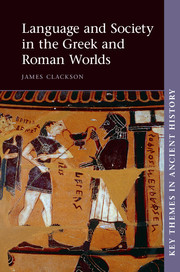Book contents
- Frontmatter
- Contents
- List of maps
- List of figures
- List of tables
- Acknowledgements
- List of abbreviations
- 1 The linguistic ecology of the Mediterranean
- 2 States of languages/languages of states
- 3 Language and identity
- 4 Language variation
- 5 Language, gender, sexuality
- 6 The languages of Christianity
- Conclusion: Dead languages?
- Bibliographic essay
- References
- Index
- Plate Section
3 - Language and identity
Published online by Cambridge University Press: 05 May 2015
- Frontmatter
- Contents
- List of maps
- List of figures
- List of tables
- Acknowledgements
- List of abbreviations
- 1 The linguistic ecology of the Mediterranean
- 2 States of languages/languages of states
- 3 Language and identity
- 4 Language variation
- 5 Language, gender, sexuality
- 6 The languages of Christianity
- Conclusion: Dead languages?
- Bibliographic essay
- References
- Index
- Plate Section
Summary
Introduction
In modern nation-states language can function as a marker of individual or political identity. This is particularly true in cases where there is more than one officially recognized language in the community: the choice of which language to speak or write down may reveal not only individuals' relations with and expectations of their audience, but also their self-ascribed political identity and their place within or attitude towards larger power structures, including government or religious groups. The sociolinguistic literature is well served by examples of the various ways in which language in the modern world overlaps with ethnic, cultural or national identities. Language is widely recognized to be a potential marker of identity: groups of speakers or societies may select a shared competency in a particular language as part of the ‘stuff’ out of which their identity is constructed. However, a shared language is not a necessary feature of an ethnic or cultural identity, and there are many examples where identity construction cuts across linguistic divisions. Furthermore, spoken and written forms of the same language may function in different ways in the formation of identities.
British citizens are generally not well known for their command of more than a single language, but even so, the constituent parts of the United Kingdom can provide some useful examples of the intersections between language and identity. Consider, for instance, the National Assembly of Wales. Since its inception in 1989, the National Assembly has allowed elected members to speak either Welsh or English in its formal sessions. No member of the Assembly is unable to speak English fluently, but speeches and questions to ministers are regularly made in Welsh by members of all political parties, not just the Welsh nationalist party Plaid Cymru. Moreover, the nationalist members of the Assembly do not all necessarily speak Welsh inside or even outside the Assembly.
- Type
- Chapter
- Information
- Language and Society in the Greek and Roman Worlds , pp. 63 - 95Publisher: Cambridge University PressPrint publication year: 2015



